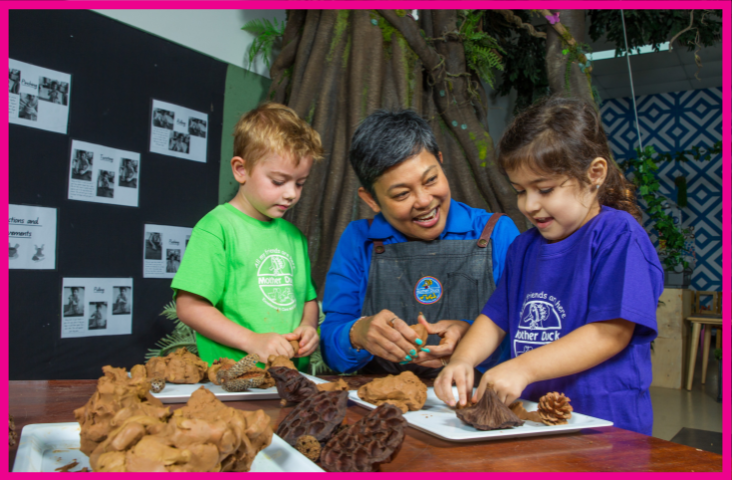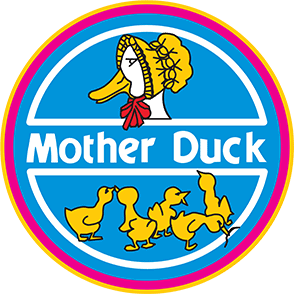
Why We Don’t Call Them Kids
For those people who have known me or worked with me for any amount of time, you have probably been pulled up at one stage for referring to your children, my children – any children really – as kids! To the point where I have even been pulled up by those I have trained when I have slipped and used the “K word”!
My favourite response when I hear someone referring to our children as kids is – Are you a farmer? After the quizzical look I receive – I then go on to explain that we don’t have any goats in the centre, so the likelihood of us discussing anything to do with ‘kids’ is pretty low! We all have those words – the ones that just make the hair on the back of your neck stand up, the ones that really annoy you when you hear them said anywhere – for me it is ‘Kids’ (plus many many more – but we don’t have time for that particular wormhole!!)
Unlike the sarcasm in my question, the reason behind why we don’t call children kids is an important one that I sometimes think is missed when I make my farmer comment. As with most slang terms, they may be fine to use in casual conversation, but when we are in a professional situation, such as in our Centres, through our documentation or in conversation with colleagues or families, we should always be referring to the youngest citizens in our community with the proper term – or even better – using their given names.
I think my intolerance for the word has come from over 20 years working in the Early Childhood Profession – it was just one of those things early on in my career that was drummed into meat we do not say! But it got me thinking of some of the other rules of thumb and terminology we have at Mother Duck and the reasons behind them:
Don’t say No to Children – Now this always sounds like we will just let children do whatever they want because we don’t say no to children. And on the surface, I completely agree, that is what it sounds like, but the reason we don’t say no when we are in conversation with children is that ‘no’ or ‘don’t’ are really hard to understand for young children. Have you ever noticed that if you say “Don’t touch that chocolate bar”, your child will almost instinctively touch the chocolate bar – or the “Don’t run across the road” right before your child steps off the footpath onto the road? This is because when you hear a comment in the negative, your brain has to process the instruction and then be able to work out the opposite of what the instruction is and then do that!! And for a 2-year-old, 3-year-old and even 4-5 year old (or older) brain – that is a process that their brains are just not equipped to handle!!

Walking Feet Inside – You might hear this kind of instruction when you enter our services, or maybe terms such as ‘keep the sand low’, or ‘gentle hands’. The reason behind this is very similar to saying no or don’t. A child’s brain has not developed enough to the point where they have the ability to process instruction and reverse it to work out the original meaning! So, we aim to tell our children what we would like them to do – rather than what we don’t want them to do. So if a child has become frustrated with their peer (or sibling) and has hit them, instead of telling them what not to do – ‘don’t hit your sister’ we tell them what we would like them to do ‘use your gentle hands’ or ‘use your words’. Obviously, these instructions would come with demonstrations of what it means to be gentle or use your words, but at least our children then have clear instructions of what they are meant to do in that situation. If they left their dishes at the table after dinner and the expectation is that they clean up after they have finished, instead of saying “don’t leave your plates there” we could say “make sure you have put your dishes in the sink when you have finished dinner”. Giving children instructions on what to do, rather than what not to do makes it easier to achieve success!

Image of Child – This is a term we started to explore in our centres over 6 years ago when we wanted to improve how we worked with children. Our Image of Child supports each centre and each educator to see children as powerful, capable, confident, and knowledgeable communicators. Working with an Image of Child guides how we interact with children, how we design their environments for learning and the way we share teaching and learning through documentation. Imagine if your Image of Child was that children are incomplete, unaware and incompetent. The way you would speak to the child would be influenced by those beliefs. But with Mother Duck’s Image of Child, we view children with a strengths-based approach and our interactions and environments reflect these beliefs.
Studios – Studios, Classrooms, Rooms, Learning Environments they may just seem like different words for the same thing. At Mother Duck, we made a conscious decision many years ago to move away from the term classroom and replace it with the term studio. With this change, also came a change to the flexibility offered to the children – how most children have greater accessibility across the entire centre. Children can access more of our key languages, mix with children of different ages and build relationships with other children and educators at the centre. And it just provides more physical space for the children to access. Our studios are learning spaces built for exploration, experimenting, and building relationships with a variety of different people – all really valuable skills we need throughout life.

These are just scratching the surface of the terms and ways of communicating that are everyday practice in our centres. Our ways of being can become second nature to us when we live and breathe it every day, so sometimes it is a good idea to reflect and ask ourselves the question – why do we do (or say) things in a certain way? As we continue to reflect on our practice and terminology I am sure more examples will come up, but until next time, if you see me around your centre asking someone about farmers – you will know why!


